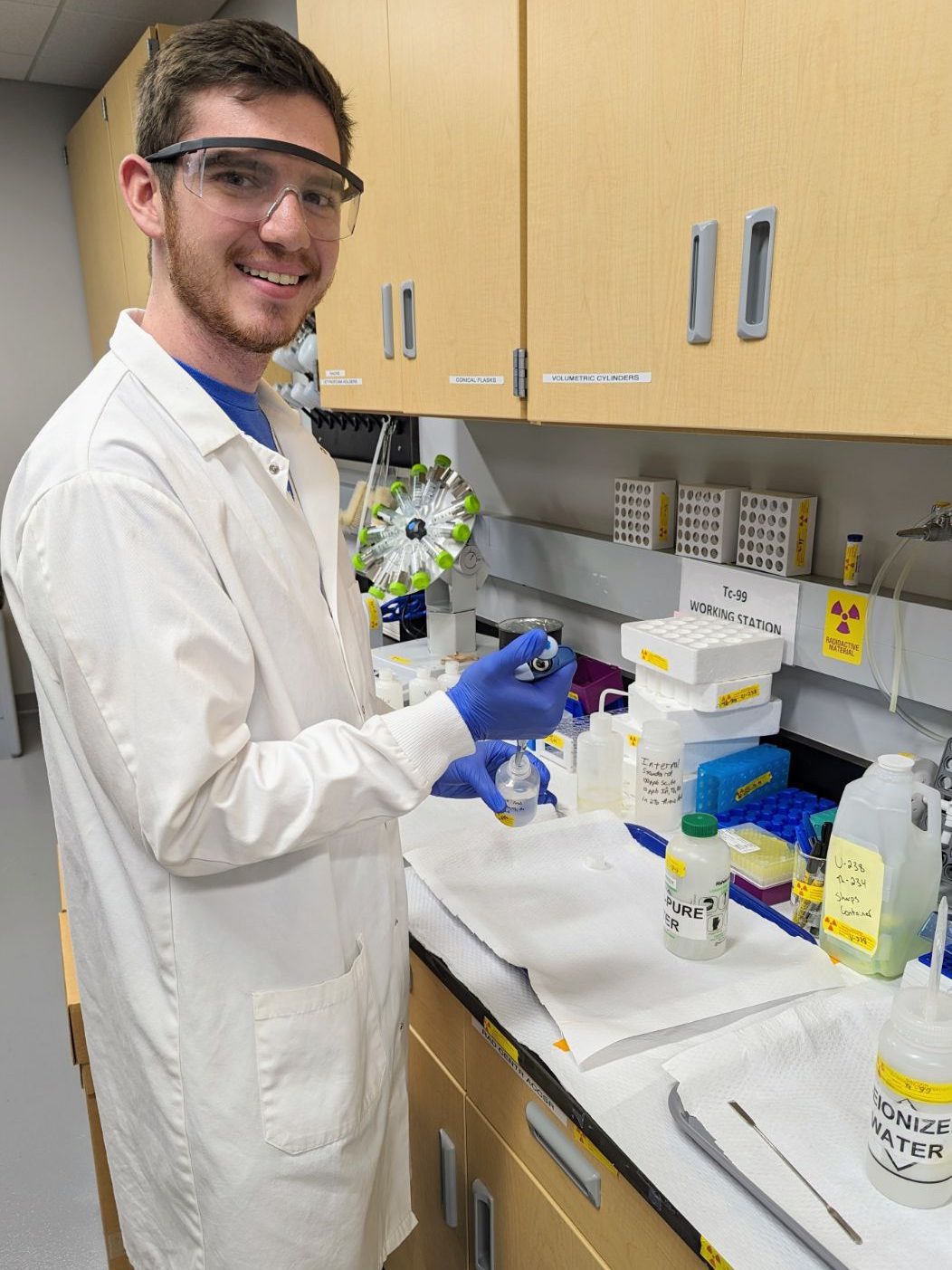Chemistry Ph.D. Student Researches Nuclear Waste at Internship
Chemistry Ph.D. student Zach Murphy studied nuclear waste storage during an internship with Lawrence Livermore National Lab (LLNL). His faculty advisor Assistant Professor Vasileios Anagnostopoulos, Ph.D. sees the immense value in internships for UCF Chemistry students.
“Internships are a great opportunity for students to get hands-on experience with cutting-edge technology that is not available in a university. This expands their skillset and makes them very attractive for employment upon graduation,” shared Anagnostopoulos.
“Zach also had the opportunity to network and receive exposure on how large research government centers work, where a lot of scientific discoveries and decisions are made,” Anagnostopoulos added.
Murphy shared more about his internship experience and the important nuclear research that he contributed to.

Why did you choose UCF for your Ph.D. program?
I chose UCF because the chemistry program has a really strong forensics program, and it’s an R1 research institute with a ton of interesting chemistry professors. Even though my dissertation research is less directly linked to forensic chemistry, I’m still really proud of the forensic research happening at UCF.
What is your area of interest/focus in your Ph.D. program?
My Ph.D. research is in environmental radiochemistry with Dr. Vasileios Anagnostopoulos. Right now, my research looks at how uranium behaves in nuclear waste and its surrounding environment.
Why did you decide to apply to this internship?
I applied to the internship at Lawrence Livermore National Lab (LLNL) because I’m very interested in the national lab circuit for a future career. The labs are especially appealing to someone in my field of research since some of the most cutting-edge nuclear chemistry is being done at these national labs. My advisor is also a strong advocate for the national labs and put me in contact with some of the scientists at LLNL, which helped me get an idea of some projects going on at LLNL.
Please tell us more about the internship. What did you do?
I spent 10 weeks in Livermore, CA at LLNL this last summer 2023. Basically, I worked with different rock layers to see how a few radioactive elements would interact with the rock. One idea of how to store nuclear waste is to store it deep underground, so this project was done to see how the waste might interact with its surroundings. I ran a lot of different tests, mostly characterizing the rocks and then testing how the rocks interact with radioactive elements. In an ideal scenario, the rocks would form a sort of natural barrier preventing the waste from spreading too far, so we would like for the radioactive contaminants to stick to the rock really strongly.
What is the impact of the research you conducted in your internship?
The concern of where to store nuclear waste long-term has been an ongoing issue. I mentioned above that one of the ideas of what to do with the waste is to store it underground, called a nuclear waste repository. So, this research was really trying to figure out if the surrounding geography of these theoretical repositories matters. With this info, we can determine if one location is better than another to build the repository, and also if the depth of the repository plays a role in its efficiency to prevent the spread of nuclear waste.
What advice do you have for other students seeking internships?
I would highly recommend seeking out internships. It’s a great chance to see what life is like after graduation and see what is going on in your field of interest. I don’t want to give any false advice, but in my case, it really helped reaching out to the lab personally rather than sending in a random application. This way I could make a personal contact and talk directly with the people looking for interns and make sure our interests aligned.
